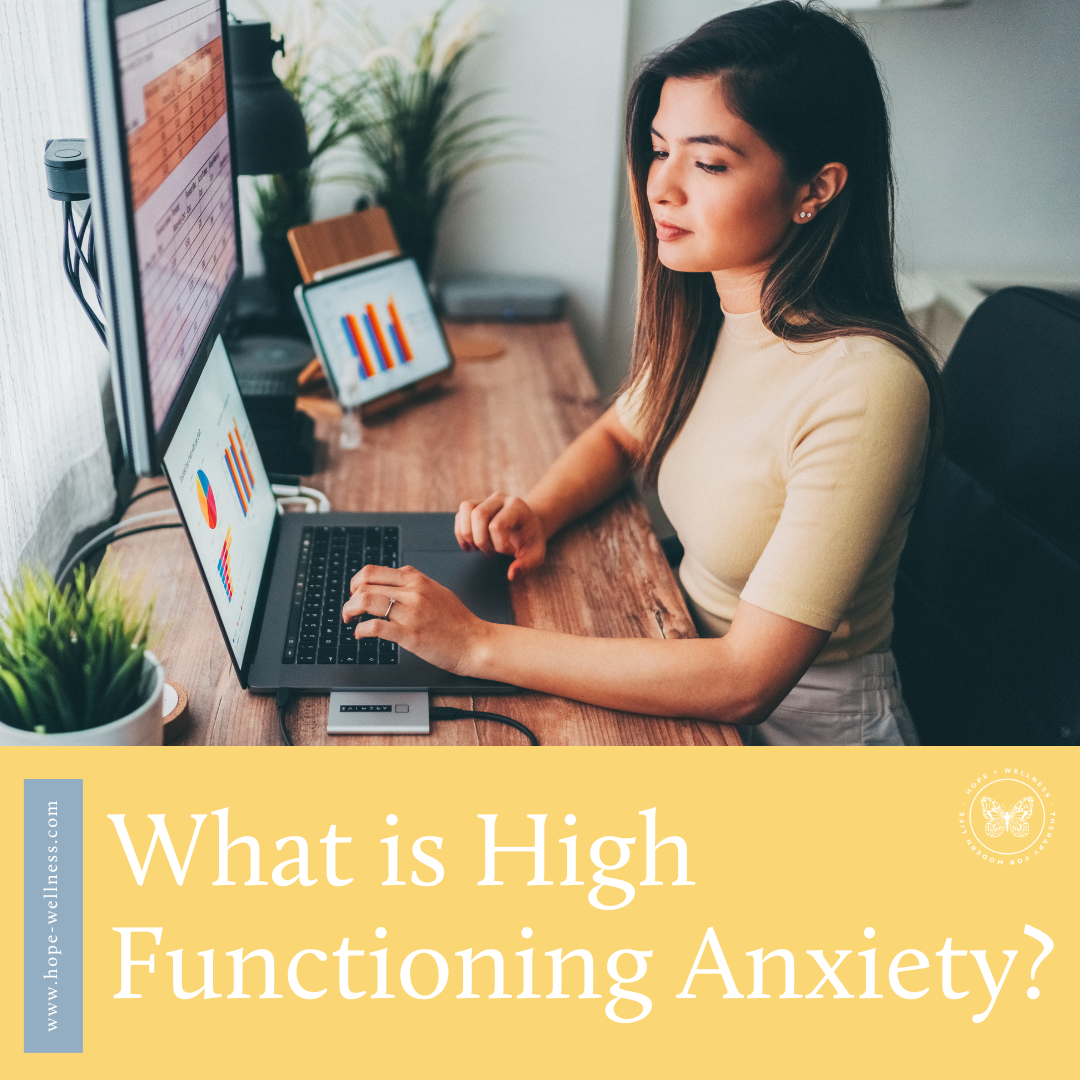
Hope +Wellness Blog
little snippets of advice for everyday challenges many people share

7 Tips for Dealing With Travel Anxiety
If travel triggers anxiety for you, you’re not alone! There are things you can do to manage travel anxiety and still enjoy your trip.

6 Practical Ways to Cope with Post-Election Anxiety
Your feelings post-election are valid, including anxiety for what’s to come. These are a few ways to cope with post-election anxiety.

Managing Racing Thoughts That Keep You Awake
Have you ever been trying to fall asleep, but your thoughts just wouldn’t stop? One minute you were sleepily dragging yourself under the covers, and the next your heart was pounding and your thoughts were racing and your breaths were coming in short and quick? Racing thoughts aren’t uncommon–we all deal with them from time to time

5 Strategies for Overcoming Social Anxiety at Holiday Gatherings
How can you make sure social anxiety doesn’t get in the way of enjoying events you attend during the holiday season? Here are 5 strategies for overcoming social anxiety at holiday gatherings.

What is High Functioning Anxiety?
People who struggle with high functioning anxiety often find themselves motivated by their anxiety to achieve their goals and to appear perfect. Often, they struggle with extreme inner turmoil while on the outside they appear successful.

6 Ways to Deal With Intrusive Thoughts
Intrusive thoughts often cause extreme distress and worry, and they can be difficult to deal with in the moment. So, how can you cope with intrusive thoughts? Here are 6 strategies to try the next time you have an upsetting intrusive thought.

5 Ways to Deal with Rumination
When you get stuck in a never ending loop of negative thoughts about a situation, you might be ruminating. This distressing pattern of thinking can be hard to break out of, but there are things you can do to help yourself when you find yourself stuck in rumination.

Finding Meaning When Life Is Scary or Confusing
Finding meaning can look different for everyone. Some people find meaning through creativity. Others use religion to make meaning of the world around them. Many people find meaning in their communities or in nature. When life is scary, restoring your sense of purpose can be a deep comfort. If you’re looking for ways to find meaning in life right now, here are 5 ideas.

Mindfulness To Help Anxiety
Do you ever feel like you are overwhelmed by all of the thoughts and feelings taking up space in your head? Most of us have days where we feel like our brains won’t knock it off, but for folks living with anxiety, this can be a constant battle. Your thoughts, feelings, worries, judgments, and decisions take up a lot of space in your brain, and it can be hard to focus on anything else sometimes. One way to give yourself a buffer between you and the noise in your head is to develop a mindfulness practice.

Daily Habits to Help Manage Anxiety in a Healthy Way
Since folks who live with anxiety have to deal with it every day, a natural starting place for anxiety relief is with your daily routine. You already have habits, whether you realize it or not: what do you do every day?
Hope+Wellness is a mental health practice specializing in the treatment of depression, mood, stress, and anxiety in kids, teens, and adults. This is a blog about living well and finding meaning and purpose in the face of difficult challenges. This is a blog about finding hope.
Archive
- ACT
- ADHD
- Acceptance
- Anxiety
- Authenticity
- Belonging
- Bipolar
- CBT
- Calming
- Change
- Chronic Illness
- Chronic Pain
- Communication
- Community
- Coping Skills
- DBT
- Dating
- Depression
- EMDR
- Emotions
- Entrepreneurs
- Friendship
- Gratitude
- Grief
- Health Psychology
- Hope
- Inspiration
- Intimacy
- Intuition
- Joy
- Letting Go
- Love
- Manic Depression
- Mindfulness
- Miscarriage
- OCD
- Parenting
- Personal Growth
- Positive Vibes
- Quotes
- Relationships
- Resources
- Self-Compassion
- Self-Reflection
- Services
- Sleep
- Spirituality
- Stress Management
- Stress Relief
- Suffering